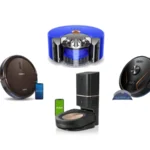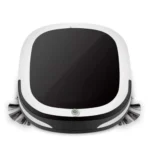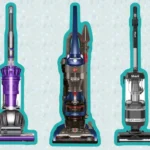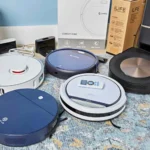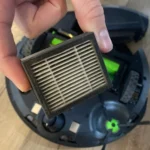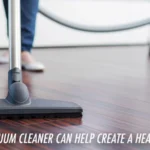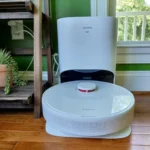Have you ever used a vacuum cleaner that was so loud you felt like you needed earplugs? Or maybe you suffer from a health condition that makes it difficult to tolerate noise. Either way, the noise level of a vacuum cleaner is an important factor to consider when purchasing a new one, especially if you’re considering a smart vacuum cleaner. But why is noise level important? What’s the science behind it? And how can you choose a smart vacuum cleaner with a low noise level that still gets the job done efficiently? In this article, we’ll explore the answers to these questions and more, so you can make an informed decision about which vacuum cleaner is right for you.
The Science of Noise
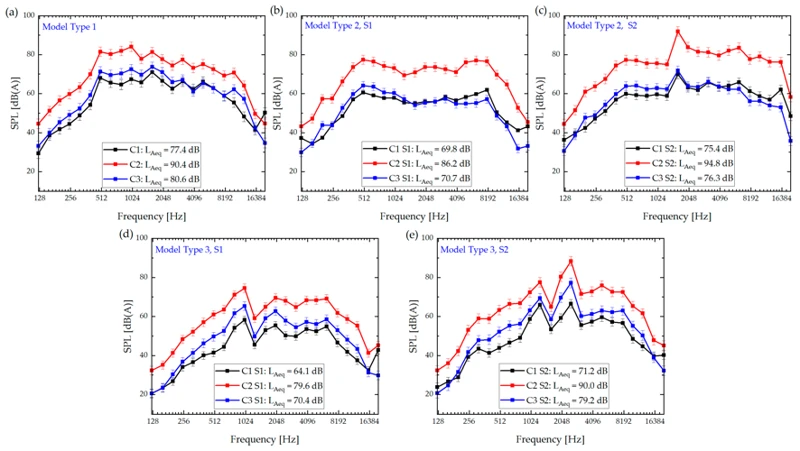
Have you ever wondered why some noises are more pleasant than others? Or why certain noises can be irritating and even harmful to our health? As it turns out, there is a science behind noise and understanding it is essential to choosing a smart vacuum cleaner. The way sound is produced and measured can be quite complex, but this knowledge is necessary to make informed decisions that will ensure we enjoy a comfortable and safe environment. In this section, we will explore the basic concepts of noise, including decibel levels and hertz, and how they relate to sound emitted by vacuum cleaners. Additionally, we will discuss how noise can affect our health, highlighting the importance of choosing a smart vacuum cleaner with a low noise level. If you want to deepen your knowledge about filtration systems, how they work, and their benefits for your health, our article Smart Vacuum Filtration Systems: Hidden Benefits for You and Your Home is worth reading.
Decibel Levels
The noise level of a smart vacuum cleaner is an important consideration to keep in mind when making a purchase. The decibel (dB) level measures the sound intensity of the vacuum, so it is essential to understand what levels of sound are safe and tolerable.
Here are some common decibel levels and their corresponding sounds:
- 0 dB – The threshold of human hearing
- 30 dB – Whispering
- 60 dB – Normal conversation
- 85 dB – Heavy traffic
- 110 dB – A rock concert
- 120 dB – A jet engine
As you can see, the decibel levels of vacuum cleaners can easily exceed safe levels of sound, which can lead to potential hearing damage over time. That is why it is crucial to choose a smart vacuum cleaner with a noise level under 85 dB.
Smart vacuum cleaners with a noise level under 60 dB are ideal for households with children, pets, or elderly people who are more sensitive to loud noises. Quiet cleaning makes it much easier to get your cleaning done without disturbing anyone in your household, making it an essential feature to prioritize.
To reduce the noise level of a smart vacuum, manufacturers use various techniques like sound insulation or improving the motor design. Choosing a smart vacuum cleaner with a noise-reducing feature is vital if you want to keep the noise level to a minimum.
Keep in mind that the noise level is also influenced by the type of floor surface and the suction power. While high suction power can effectively clean carpets and other surfaces, it can also produce a lot of noise. It is a good idea to look for a smart vacuum cleaner that has multiple suction power levels.
Proper filtration of air in your smart vacuum cleaner can also reduce the amount of noise it generates. HEPA filters, for example, are excellent for both filtering the air and reducing noise levels. To learn more about how HEPA filters work, check out our article: Do HEPA filters work?
Decibel levels are a critical factor to consider when purchasing a smart vacuum cleaner. By choosing a model with a noise level under 85 dB, you can reduce the potential health risks associated with prolonged exposure to loud noises. To learn more about how to reduce the noise level of your smart vacuum cleaner, check out our article on how to reduce the noise level in a smart vacuum cleaner. Additionally, you can also learn about the benefits of smart vacuum cleaner filtration systems in our article The Benefits of Smart Vacuum Cleaner Filtration Systems and compare various smart vacuum models in our article Smart Vacuum Cleaner Noise Level Comparison.
Hertz
Understanding the concept of hertz is critical to understanding the science of noise. Hertz (Hz) refers to the frequency of sound waves, which determines the pitch of the sound. The human ear can detect frequencies ranging from 20 Hz to 20,000 Hz. Different frequencies can have different effects on people. For example, low-frequency noises, such as those produced by an airplane passing overhead, can be felt as vibrations and cause discomfort.
The table below shows examples of common sounds and their corresponding frequencies in Hz:
| Sound | Frequency (Hz) |
|---|---|
| Whisper | 20 – 30 |
| Normal conversation | 60 – 65 |
| Vacuum cleaner | 70 – 80 |
| Blender | 100 – 300 |
| Car horn | 500 – 700 |
| Fire alarm | 800 – 1000 |
| Jet engine | 1200 – 1500 |
It’s essential to note that while the frequency of a soundwave influences the pitch, the amplitude, measured in decibels, refers to the volume of the sound. Combining both frequency and amplitude is necessary to have a complete understanding of how noise affects human health and comfort. In the next section, we’ll explore the concept of decibels and their importance in determining noise levels.
Smart Vacuum Cleaners and Noise Level
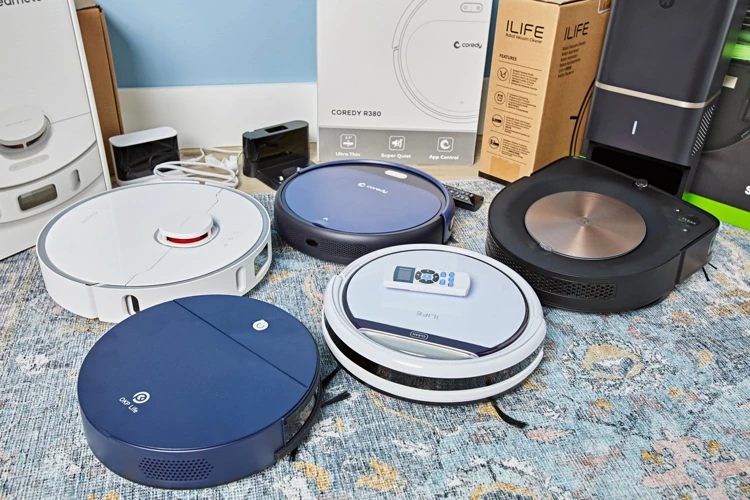
As the world becomes increasingly connected, the demand for smarter and more efficient appliances has greatly increased. One area where this trend has been particularly noticeable is in the realm of home cleaning. Smart vacuum cleaners, in particular, have gained immense popularity due to their ability to autonomously keep our homes clean while we go about our day-to-day lives. However, while these vacuum cleaners undoubtedly offer a range of benefits, one facet that is often overlooked is the impact of noise levels on both our health and quality of life. In this section, we will delve into the science of noise and explore the importance of noise level in smart vacuum cleaners.
Disturbances
In smart vacuum cleaners, disturbances caused by high noise levels can be quite significant. They can disrupt a peaceful environment, making it difficult to concentrate on other tasks or carry out conversations. Below are some of the ways in which disturbances caused by high noise levels affect us:
- Disturbed sleep: If you like to clean your home while others are sleeping, a vacuum cleaner with high noise levels can awaken them. You certainly won’t be very popular if you do this often! Even if you vacuum while the house is empty, the noise can still disturb neighbors who live nearby.
- Reduced productivity: If you work from home, a noisy vacuum cleaner can be a huge nuisance as it makes concentration difficult. Some research shows that high levels of noise can reduce overall productivity levels by up to 66%.
- Hearing damage: High decibel levels can lead to hearing damage over time. When one continues to be exposed to high noise levels, it can cause gradual hearing loss, which can eventually become permanent. In some cases, it can even lead to complete hearing loss.
In addition to the above, high levels of noise can also cause stress and anxiety. Prolonged exposure to loud noise levels can lower resistance to disease and cause fatigue, headaches, and increased irritability. It is essential to choose a vacuum cleaner with low noise levels to protect your health and well-being.
Quiet Cleaning
A quiet cleaning process is one of the most important features that people look for when purchasing a smart vacuum cleaner. While some vacuum cleaners generate a lot of noise during operation, others are designed to operate quietly, making them an ideal choice for use in homes where people prefer a quieter environment. Here are some of the benefits of a quiet cleaning experience:
- Better Concentration: A quiet environment helps promote better concentration by reducing distractions. If you’re working from home, studying, or simply trying to relax, a less noisy vacuum cleaner will help you focus better.
- Less Stress: Research shows that loud noise in the environment can cause increased stress levels in people. A quieter vacuum cleaner can reduce noise pollution, thus helping to lower stress levels.
- Improved Sleep: A loud vacuum cleaner can interfere with your sleep, especially if you prefer to clean your home during the night. A quieter cleaner will help you get a better night’s rest, which is important for your overall health and well-being.
- Less Disturbance: A noisy vacuum cleaner can disrupt your daily routine and the activities of those around you. Quieter vacuum cleaners allow you to clean your home without interfering with conversations or disturbing your pets.
To achieve a quieter cleaning experience, manufacturers use various technologies such as noise insulation, motor vibration reduction, and optimized airflow. Additionally, using a vacuum cleaner with advanced filtration technology can help to reduce noise levels. When purchasing a smart vacuum cleaner, it is important to check the decibel level and compare it with other models that are available in the market. There are various vacuum types like robot vacuum cleaners, stick vacuum cleaners, canister vacuum cleaners, and upright vacuum cleaners, and each type has its own noise level. Make sure to choose the one that suits your needs while providing you with a quiet cleaning experience.
Health Risks
When it comes to noise pollution, many people don’t realize the serious health risks associated with prolonged exposure. Smart vacuum cleaners may not seem like an obvious culprit, but they can emit decibel levels high enough to cause harm. Here are some of the health risks associated with high noise levels emitted by smart vacuum cleaners:
Hearing Damage:
Exposure to sounds above 85 decibels (dB) can cause hearing damage over time. Smart vacuum cleaners can emit sounds that easily breach this threshold, especially during high-intensity cleaning. Consistent exposure to such high decibel levels can lead to permanent and irreversible hearing loss.
Tinnitus:
Tinnitus is a ringing or buzzing in the ears that can be temporary or permanent. People who have been exposed to loud noises, such as those produced by smart vacuum cleaners, are more likely to develop tinnitus. It can be a frustrating and debilitating condition that can negatively impact your life.
Sleep Disturbances:
The noise of a smart vacuum cleaner can disrupt your sleep, causing you to wake up frequently or have difficulty falling asleep. Lack of sleep or disrupted sleep can lead to a host of health problems, including fatigue, irritability, and diminished cognitive function.
Stress and Anxiety:
Prolonged exposure to loud noises can trigger the release of stress hormones such as cortisol and adrenaline. This can lead to feelings of stress, anxiety, and even panic attacks in some individuals.
Cardiovascular Disease:
Studies have linked prolonged exposure to high levels of noise pollution to an increased risk of cardiovascular disease. Smart vacuum cleaners, which can emit decibel levels that exceed 80 dB, can contribute to the development of hypertension, heart attacks, and strokes.
To mitigate these risks, it’s important to choose a smart vacuum cleaner with a low noise level. Additionally, using earplugs or noise-canceling headphones can help protect your hearing and reduce the negative effects of noise pollution on your health.
Factors that Affect Noise Level
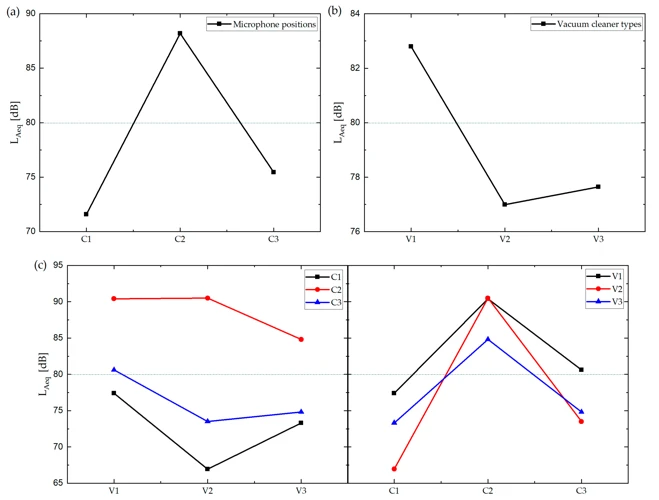
When choosing a smart vacuum cleaner, one crucial aspect to consider is the noise level. The level of noise produced while cleaning can be affected by several factors. Understanding these factors is essential as it can help you make an informed decision when selecting a vacuum cleaner that fits your needs. Let’s explore some factors that play a role in affecting the noise level of a smart vacuum cleaner.
Vacuum Type
The vacuum type plays a crucial role in determining the noise level emitted by a smart vacuum cleaner. Let’s take a closer look at some of the different types of vacuums and how they affect noise levels:
- Upright Vacuums: These vacuums are the most common and popular type of vacuum, mainly because they are the most powerful. However, this power can also translate to higher noise levels, often ranging between 70-90 decibels.
- Canister Vacuums: Canister vacuums are often quieter than upright vacuums because they house the motor and fan in a separate canister from the brush and suction head. This configuration can often reduce noise levels to around 65-75 decibels.
- Stick Vacuums: Stick vacuums are often the quietest type of vacuum, typically operating between 60-70 decibels. However, they don’t always offer the same power as upright or canister vacuums, so they may not be as effective for deep cleaning.
- Robotic Vacuums: Robotic vacuums have become increasingly popular in recent years for their convenience and ability to clean on their own. However, they are often louder than other types of vacuums, with noise levels typically around 70-80 decibels.
When choosing a vacuum type, consider the noise level you are comfortable with and how that fits with the power and cleaning capabilities you need. Keep in mind that while stick vacuums may offer lower noise levels, they may not be suitable for deep cleaning, and robotic vacuums may sacrifice some noise reduction for the convenience of autonomous cleaning.
Filtration System
When it comes to cleaning, many people focus primarily on noise level and power capacity. However, one overlooked aspect that can affect both your air quality and the noise level of your smart vacuum cleaner is the filtration system.
A vacuum’s filtration system is responsible for trapping small particles and dust, preventing them from being released back into the air. These systems are especially important for people who suffer from allergies and asthma, as they can trap allergens and irritants that can trigger symptoms.
There are several types of filtration systems used in smart vacuum cleaners, including HEPA filters, foam filters, and mesh filters. HEPA filters, or High Efficiency Particulate Air filters, are widely considered the best option because they can remove up to 99.97% of particles as small as 0.3 microns. These filters are also more efficient at trapping larger particles, like pet hair and dander.
Foam filters, on the other hand, are washable and reusable, making them a more cost-effective option. They may not be as effective as HEPA filters, but they can still trap a significant amount of particles.
Mesh filters are the most basic type of filter and are often used in combination with other filtration systems. They are not as effective as HEPA or foam filters, but they can still trap larger particles.
When choosing a smart vacuum cleaner, it is important to pay attention to the type of filtration system it uses. HEPA filters are ideal for those with allergies and asthma, but they may also be more expensive. Foam filters are a more cost-effective option, but may not be as effective at trapping smaller particles. Mesh filters are the least effective option but can still provide some level of filtration.
In order to make the best decision for your home, it is important to consider the type and severity of any allergies or health concerns, as well as your budget. Check the product descriptions carefully and compare the pros and cons of each filtration system. Consider creating a table to compare the specifications of each option, including cost, effectiveness, and durability.
By paying attention to the filtration system of a smart vacuum cleaner, you can create a cleaner and healthier environment for you and your family.
Power Capacity
When it comes to the power capacity of a smart vacuum cleaner, there are a few things to consider. It’s important to note that higher power doesn’t always mean higher noise level, but it’s still an important factor to keep in mind. Here’s a breakdown of what to consider:
| Type of motor | Power consumption | Noise level |
|---|---|---|
| Standard Motor | Low | Low-Medium |
| Advanced Motor | Medium-High | Low |
| Brushless Motor | High | Low-Medium |
Firstly, consider the type of motor used in the smart vacuum. A standard motor typically uses less power but may produce more noise. An advanced motor may have higher power consumption, but it can still produce low noise level. Alternatively, a brushless motor may use high power but have a low to medium noise level.
The next factor to consider is the suction power of the vacuum. A higher suction power can mean a more efficient and thorough cleaning, but can also mean increased noise. However, it’s important to note that some smart vacuums have been designed to optimize suction power while minimizing noise.
Lastly, consider the power options available for the vacuum. Some smart vacuums may be cordless, which can limit their power capacity but provide the added convenience of not being tethered to a power outlet. Others may have more powerful motor options, but may require more power consumption when in use.
When considering the power capacity of a smart vacuum cleaner, it’s important to balance power and noise level. Choose a motor type that suits your needs, and consider the suction power and power options available for the vacuum.
How to Choose a Smart Vacuum Cleaner with Low Noise Level
As you begin your search for a smart vacuum cleaner with low noise level, it’s understandable to feel overwhelmed by the array of options available in the market. With various factors to consider such as decibel levels, vacuum types, filtration systems, and power capacities, it’s easy to get lost in the sea of information. However, with the right knowledge and guidance, you can confidently choose the perfect smart vacuum cleaner with low noise level that matches your cleaning needs. In this part of the article, we’ll provide you with a detailed guide on how to choose a smart vacuum cleaner with low noise level to help you make an informed decision that you’ll be happy with.
Checking the decibel levels of the vacuum
When choosing a smart vacuum cleaner with low noise level, the decibel level is the most important factor to consider. Here are some steps to follow when checking the decibel levels of a vacuum:
- Research decibel levels: Before purchasing a smart vacuum cleaner, research online for the appropriate decibel levels that are suitable for your home. The recommended level for indoor cleaning is between 60-65 decibels.
- Look for decibel ratings: When searching for vacuums online or in-store, look for decibel ratings either in the product description or on the packaging.
- Compare decibel levels: Create a list of vacuums that meet your requirements and compare their decibel levels. Choose the one that offers the lowest decibel level and fits within your budget.
- Test the vacuum: If possible, test the vacuum cleaner before purchasing it. Turn it on and listen to the noise level. If the noise level is comfortable for you, it’s a good option to consider.
Remember that a decrease of just a few decibels can make a significant difference in noise level. So, always opt for a vacuum cleaner with a lower decibel level to ensure a quieter cleaning experience.
Considering Vacuum Type
When considering the noise level of a smart vacuum cleaner, it’s essential to take into account the type of vacuum you are purchasing. Different types of vacuums emit varying levels of noise. Let’s take a closer look at some of the most popular vacuum types and their noise level:
| Vacuum Type | Noise Level |
|---|---|
| Upright | Upright vacuums are generally the noisiest of all vacuum types, with an average noise level of 80-89 decibels. |
| Canister | Canister vacuums are much quieter than upright vacuums, with an average noise level of 70-79 decibels. |
| Stick | Stick vacuums are the quietest of all vacuum types, with an average noise level of 60-69 decibels. |
As you can see, stick vacuums are the quietest option, followed by canister vacuums, and upright vacuums being the noisiest. Keep in mind that these noise level ranges are only averages, and could vary depending on the brand and model of vacuum you are purchasing.
When choosing a smart vacuum cleaner, it’s essential to consider the vacuum type and its noise level, but also the cleaning capability it provides. Stick vacuums may be the quietest option, but they may not have the same suction power and filtration system as an upright vacuum. It’s crucial to balance the noise level of the machine with the cleaning performance it provides.
Taking time to research various vacuums and comparing their features, such as their noise level, is crucial when selecting a smart vacuum that meets your cleaning needs while also keeping noise to a minimum.
Filtration System
One important factor to consider when choosing a smart vacuum cleaner with a low noise level is its filtration system. A good filtration system not only improves air quality but also plays a crucial role in reducing noise pollution. Here are some features to look out for when assessing the filtration system of a smart vacuum cleaner:
- Airflow design: Vacuum cleaners with high-quality filtration systems not only filter the air but also regulate the airflow. A smart vacuum cleaner with a powerful airflow design allows it to capture all dirt and debris without using excessive suction power, thus reducing noise levels.
- Filter type: The type of filter that a smart vacuum cleaner uses plays a big role in reducing noise pollution. Some filters like the HEPA filter capture even the smallest dirt particles and allergens and are quieter compared to other filters.
- Filter replacement: It’s important to consider the cost and ease of replacing a vacuum cleaner’s filter. A filter that requires frequent replacements can prove to be an added cost, and it’s important to have an affordable and easy-to-change filter for convenient maintenance.
When a vacuum cleaner’s filtration system is working efficiently, it reduces the overall noise levels that the vacuum produces. Choosing a smart vacuum cleaner with a good filtration system is crucial to ensuring that the vacuum runs quietly and performs an efficient cleaning job.
Power Capacity
When it comes to the power capacity of a smart vacuum cleaner, it plays a crucial role in determining its noise level. The higher the power capacity, the more noise the vacuum cleaner will make. However, a high power capacity is also necessary for efficient cleaning, especially in households with larger spaces or high-traffic areas. So, it is important to strike a balance between the power capacity and noise level when choosing a smart vacuum cleaner.
Factors affecting power capacity:
- Motor size: The motor size is directly proportional to the power capacity of the vacuum cleaner. A larger motor will produce more suction power, but also generate more noise.
- Corded vs cordless: Corded smart vacuums generally have more powerful motors and higher power capacities. Cordless vacuums, on the other hand, have smaller and less powerful motors, but they offer more maneuverability and are generally quieter.
- Battery Life: Cordless smart vacuums have batteries that determine their power capacity. Larger battery capacity means more suction power, but also more noise when in use.
When choosing a smart vacuum cleaner, it is important to consider your specific needs and preferences. If you live in a smaller space or have minimal carpeting, a lower power capacity may suffice. However, if you have a larger home with dense carpets or pets that shed excessively, a higher power capacity may be necessary.
Tip: Look for a smart vacuum cleaner with adjustable power settings so that you can lower the motor power and reduce noise levels as needed.
Customer reviews
When it comes to choosing the right smart vacuum cleaner with low noise level, it’s important to do your research and look into customer reviews. Real-life experiences can be invaluable when making such an investment. Here are some things to look for in customer reviews:
- Noise Level: Look for comments on how loud or quiet the vacuum is during operation. If noise level is a top priority for you, look for reviews that specifically mention the vacuum’s low noise level.
- Performance: While noise level is important, so is a vacuum’s ability to clean thoroughly. Look for reviews that mention how well the vacuum performs on different surfaces and how effective it is at picking up dirt, pet hair, and debris.
- Filtration System: A vacuum’s filtration system is important for capturing dust and allergens. Look for reviews that mention the quality of the filtration system and how well it works to keep the air clean.
- Power Capacity: The power of a vacuum can affect its noise level and performance. Look for reviews that mention the vacuum’s power capacity and how it affects its ability to clean.
- Design and Features: Consider the design and features of the vacuum, such as the size or the ability to be controlled through an app, as well as how they affect noise level and performance. Look for reviews that mention these factors and how they impact the overall experience of using the vacuum.
When reading customer reviews, be sure to look for reviews from verified purchasers to ensure their experience is legitimate. Don’t rely on just one or two reviews, but read a variety to get a full understanding of the vacuum cleaner’s performance and noise level. By taking the time to read reviews, you can make a truly informed decision when choosing a smart vacuum cleaner with low noise level that meets your needs.
Conclusion
In conclusion, it is important to understand the significance of noise level in a smart vacuum cleaner. The science of noise tells us that exposure to loud sounds can cause long-term damage to our hearing, and can also contribute to stress and anxiety. Hence, it is crucial to select a smart vacuum cleaner that comes with a low noise level.
Factors like vacuum type, filtration system, and power capacity can influence the noise level of a vacuum cleaner. Bagged vacuums tend to be quieter than bagless ones, while HEPA filters can reduce noise levels by minimizing airflow resistance. Similarly, choosing a vacuum cleaner with a lower wattage can result in a quieter cleaning experience.
When selecting a smart vacuum cleaner with low noise level, it is important to do thorough research. Checking the decibel levels of the vacuum cleaner, reading customer reviews, and considering features like filtration system and vacuum type can help make an informed decision.
In the end, the goal should be to find a smart vacuum cleaner that not only effectively cleans your home, but also does so in a way that preserves your hearing health and overall well-being. Remember, a quiet home is a happy home!
Frequently Asked Questions
What is the recommended noise level for a smart vacuum cleaner?
The recommended noise level for a smart vacuum cleaner is 60 decibels or lower.
What is a decibel?
A decibel, symbol dB, is a unit used to measure the intensity of sound.
What is Hertz?
Hertz, symbol Hz, measures the frequency of a sound wave in cycles per second.
What are the health risks associated with high noise levels in smart vacuum cleaners?
High noise levels in smart vacuum cleaners can lead to hearing loss and other health problems such as stress and high blood pressure.
What type of vacuum is the quietest?
Cylinder or canister vacuum cleaners tend to be the quietest, as they have insulated shells and use larger motors to generate less sound.
What should I look for in a filtration system to reduce noise levels?
A multi-layer filtration system can help reduce noise levels, as it can capture dust and debris more efficiently, reducing the need for a higher power motor.
What is the difference between a bagged and a bagless vacuum cleaner?
A bagged vacuum cleaner uses disposable bags to collect debris, while a bagless vacuum cleaner uses a dustbin which can be emptied and reused.
How can I tell if a vacuum cleaner is powerful?
While the power of a vacuum cleaner is measured in watts, it is not always an accurate indicator of suction power. Look for a high airwatt rating, which measures the amount of suction power generated by the machine.
What is the advantage of a robotic vacuum cleaner?
A robotic vacuum cleaner can clean your home while you’re away or busy with other tasks, automatically navigating obstacles and cleaning each room efficiently.
What should I consider when reading customer reviews of a smart vacuum cleaner?
Pay attention to reviews that mention noise levels, filtration system efficiency, maneuverability, and overall cleaning performance.

